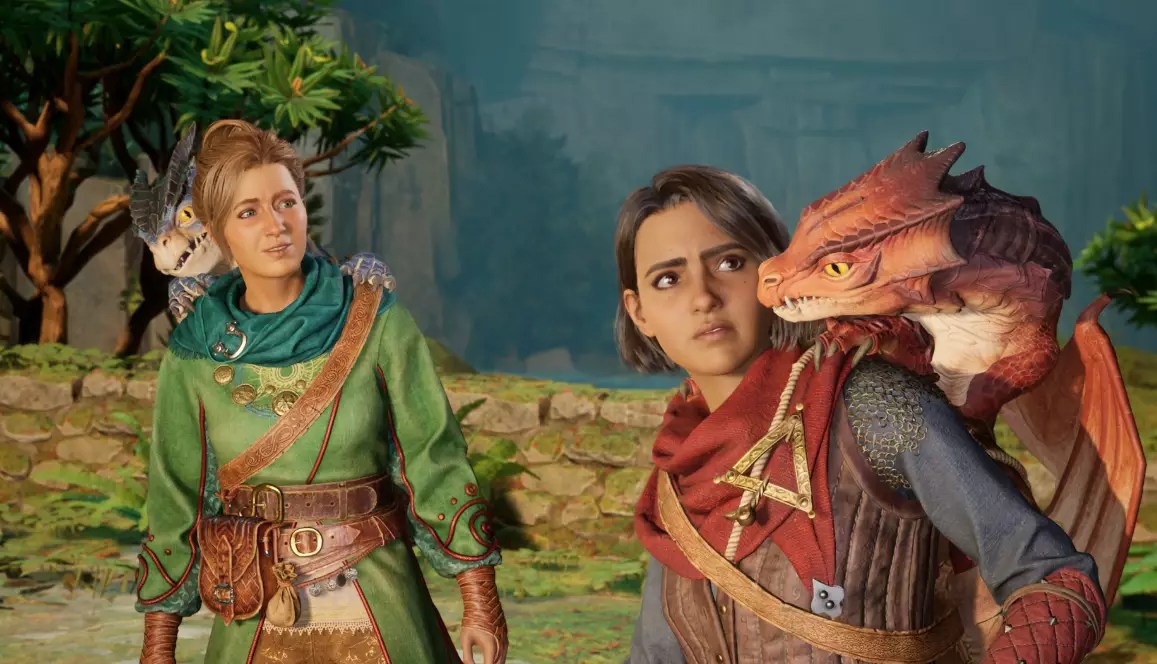After the enormous success of “It Takes Two,” which sold over 20 million copies, Hazelight Studios is set to unveil its latest project, “Split Fiction,” in March. The game follows the journey of characters Mio and Zoe as they grapple with a novel machine that exploits the creativity of writers by appropriating their ideas without compensation. As technology progresses, particularly in the realm of artificial intelligence (AI), concerns around ethics and artistic integrity are becoming more pronounced not only in gaming, but across multiple sectors.
Josef Fares, the founder and director of Hazelight, recently shared his thoughts on the role of AI in a candid interview with VGC. He views AI as a double-edged sword; it is both a source of anxiety and an avenue for innovation. According to Fares, the key to navigating this technological shift lies in collaboration rather than confrontation. He articulated, “Whatever new technology that comes, you should work with it and not against it.” This forward-thinking philosophy suggests that the gaming industry should embrace AI as a tool intended to enhance creativity and efficacy rather than viewing it merely as a threat.
Fares recognizes that there are valid concerns about potential job losses as AI becomes more integrated into the industry. Nevertheless, he believes that adaptation is essential. He emphasized that every technological advancement has historically been met with resistance, but ultimately, it leads to evolution within the industry. The emphasis should be on leveraging AI to make better games rather than fearing it. This sentiment reflects a broader trend in the industry where many game developers are already incorporating AI into their workflows, despite ongoing debates about the implications.
Despite the growing usage of AI among developers, the discourse surrounding it remains fraught with complexities. Industry giants like Electronic Arts acknowledge that while AI may displace certain jobs in the short term, it also has the potential to create new roles, thereby generating a net gain in employment in the long run. This perspective stands in contrast to Take-Two Interactive’s Strauss Zelnick, who raised philosophical questions about the nature of AI, referring to it as an “oxymoron” and underscoring the indispensable nature of human creators in the development process.
Fares’ optimistic view of AI contrasts with concerns echoed elsewhere in the industry, especially as video game actors currently strike over issues closely tied to AI. Veteran voice actress Jennifer Hale labeled AI as an “existential” threat to the future of video game performance, highlighting the apprehensions many hold regarding AI’s potential to undermine the artistry and nuance that only human performers can bring to characters.
Navigating the integration of AI into gaming invites a broader discussion about its ethical implications. Fares acknowledges that with the rise of AI, there will inevitably be instances of both positive and negative outcomes. He has stated, “You can’t just close your eyes,” implying that ignoring the ramifications of AI is not an option. Fares anticipates that AI will eventually have a more profound impact than the internet itself, albeit with a longer timeline for its full development potential within game design.
The dual realities of opportunity and concern in AI’s ascendant role point to the necessity for balanced discourse around its integration, especially in a creative landscape where storytellers like those of “Split Fiction” thrive. The industry must grapple with these ethical dilemmas while also embracing the tools that can streamline production and enhance storytelling.
As Hazelight prepares to launch “Split Fiction,” it becomes apparent that the intricate relationship between gaming and AI will only deepen. With technology ever-unfolding and evolving, the key takeaway from Fares’ insights may be that adaptation is not just advisable but essential. Whether AI serves as an enabler or an antagonist in the realm of creativity remains to be seen, but one thing is clear: both developers and players will need to navigate this new frontier together. With the stakes high and the potential transformational, the conversation around AI in gaming will undoubtedly continue to unfold as the industry moves forward.


Leave a Reply